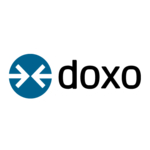Independent broker-dealers: keep reps and build on fund-family partnerships
After watching the tug-of-war between brokers and fund families over the past 25 years, I think it’s fair to say that the winners in the battle to “own” the customer relationship are the big brokerage houses and banks. At this point, the vast majority of mutual-fund assets reside in omnibus accounts, out of the direct control of fund companies.

Let’s get the lay of the land with a quick industry-evolution review and where it’s left IBDs.
Generally, investors have benefitted from the evolution. They have better access to more asset managers, consolidated statements, simplified trading and integration with a broad array of products offered by those big financial intermediaries.
But the benefits to brokers of this industry evolution do not always extend to independent broker-dealers, which are the focus of this article. Many independent broker-dealers (IBDs) still “go direct” because of operational constraints and strong preferences among their reps to maintain the decades-old “check and app” account-opening process. In turn, fund families have provided vigorous marketing and product support, which tends to reinforce those rep preferences.
But for reasons of regulatory compliance and operational streamlining, many IBDs are having to rein in “check and app” mutual-fund account-opening. Does shifting to omnibus accounts mean it’s necessary to emulate the big banks and dealers, even if the cost is frustrated reps and injured partnerships with their preferred fund families? It doesn’t need to be.
I’ll comment further on the “direct problem” and a new way of thinking about solutions. First, though, let’s get the lay of the land with a quick industry-evolution review and where it’s left IBDs.
Balance of power: 1990s to today
For most investors in the 1990s, to buy a mutual fund was to complete an application and send a check to a fund family. To the extent advisors (mostly commissioned reps, at that time) were involved, they too usually opened accounts for clients directly with funds.
In the late 1990s, I was in an operations role with a large direct-sold mutual fund company. What I saw from about 1998 to 2001 was a golden age for mutual funds: three years in a row of incredible performance (on an absolute level) made it possible for a wave of no-load funds to elbow reps to the sidelines.
Individual investors would call reps at large broker-dealers, ask about a particular fund, learn the fund wasn’t available to them via that dealer and pull money from the dealer to open a direct account with the chosen fund themselves.
Seeing this dynamic, broker-dealers sought to stay in the game by striking relationships with no-load companies. They had to—even though this compromised their commission-driven business—in order to remain relevant to their clients.
But then the tech bubble burst and, around the same time, prominent no-load firms ran into regulatory trouble. Dealers were roundly criticised for inappropriate trade execution and insufficient due diligence. As they stepped up operational controls, the dealers saw an opportunity to go a step further, in wrestling back from the no-load fund families “ownership” of the customer accounts.
Some of the big broker-dealers began a huge push to bring mutual fund assets in-house, at no load and load families alike. They forced reps to “go to traditional brokerage.” There was a tremendous increase in the use of National Securities Clearing Corporation (NSCC) Level 3 omnibus accounts. Today, mutual fund families have only secondary access to their end-investors’ names, and they pass servicing reimbursements directly to the dealer for services that used to be provided by transfer agents.
During the mid-2000s, more and more of the large self-clearing intermediaries and the conglomerate banks joined in this push. They watched other brokers get paid to perform recordkeeping. They recognised they needed the additional distribution avenues provided by omnibus to stay competitive. The fund families began to realise they needed to jump on-board the “omnibus train” or risk losing clients to uncompetitive service practices.
Ultimately, in a messy process that had peaked in the early 2010s, all the big banks and dealers had standardised around omnibus bookkeeping as a business practice and the DTCC for omnibus trading. The fund companies acceded to the normalisation to the point of working with their prominent distribution partners to convert direct-held fund positions to omnibus accounts and paying fixed shareholder servicing fees to the dealers, in many cases.
What about IBDs?
For IBDs, the benefits of this evolution are less clear. Many IBDs lacked “influence” because they didn’t represent significant asset gathering to the fund companies. Most of their overtures to consolidate their direct accounts were rebuffed. So, they didn’t benefit as much from fund families paying for funds to be featured on recommended lists (prior to Reg BI). Nor did they have the scale to take on shareholder servicing in-house.
Yet they faced the same compliance-related challenges that their bigger peers did. They, too, needed to ensure investment suitability, for example. They, too, wanted operational improvements to rationalise workflows to stay competitive.
Recognising this, some have tried to force migration to their traditional brokerage platform through positive consent—whether prompted by revenue, distribution, operational or compliance objectives—only to run into resistance from reps and clients. Some IBDs had to abandon those efforts entirely for fear of losing the rep/advisor.
The rep/advisor response in these cases is not terribly surprising, given that IBD businesses tend to be built to accommodate somewhat more, rather than less, flexibility. The problem is that to continue offering that flexibility in the familiar way that reps like—“going direct”—makes it almost impossible to exert consistent operational controls.
Therefore, IBDs haven’t been able to “bring home” investors as large a percentage of their accounts when compared with banks and larger dealers. That may be welcome to the mutual funds who continue to service the direct-held investor accounts, but it puts IBD home offices in a tough spot. Moreover, these accounts maintained at the fund companies widened the competitive gap between IBDs and their bigger competitors when it came to competing for investors’ business on the merits of options, simplicity and access.
To exert sufficient control, many IBDs would have to upend a meaningful part of what makes their business “work.” That would impact reps negatively and, by pulling accounts away from fund families, disrupt their mutual fund partners’ businesses as well.
Ultimately, shifting to omnibus is a clear need—the question is only “when” and “how.” Omnibus is one of the most efficient ways to adequately centralise control, streamline data gathering and ensure consistent service levels to reps and clients.
A new partnership mindset
If you take as given that IBDs should move to omnibus, either sooner or later, then a good next question is this: How can an IBD best preserve both its existing positive relationships with its primary fund family or families, and deliver what its customers like best about mutual funds: their customer servicing and minimal amount of transactional charges?
A new way of partnering has potential to let the symbiotic aspects of these IBD-fund-client relationships continue. Yes, it means omnibus. But no, it doesn’t have to mean the fund family “disappears” from the rep and client experience.
Rather, the IBD could set up a portal with branded, easy access to one or more fund families’ products. For a rep, navigating this portal could be like being “inside” the fund structure itself. They can focus, together with client, on just those funds they wish to—without the distraction of thousands of other options.
This “boutique” model, in contrast to the “superstore” approach of wide-open traditional brokerage, creates a win for the rep, their client, and the mutual fund companies the rep is selling. Fund families will no doubt appreciate the focus that comes with this narrower selection. They may recognise value in continuing to provide extensive wholesale support.
There’s no question that compliance-driven needs are at the forefront of the shift to omnibus. But addressing those needs doesn’t have to blow up what’s already working for all parties’ benefits in IBDs relationships with fund families.
The “us vs. them” mentality that characterised the big banks’ and dealers’ decades-long battle with the fund families is neither necessary nor useful for IBDs. Stepping outside of it, with a partnership mentality that accommodates omnibus, is a practical way forward.









































